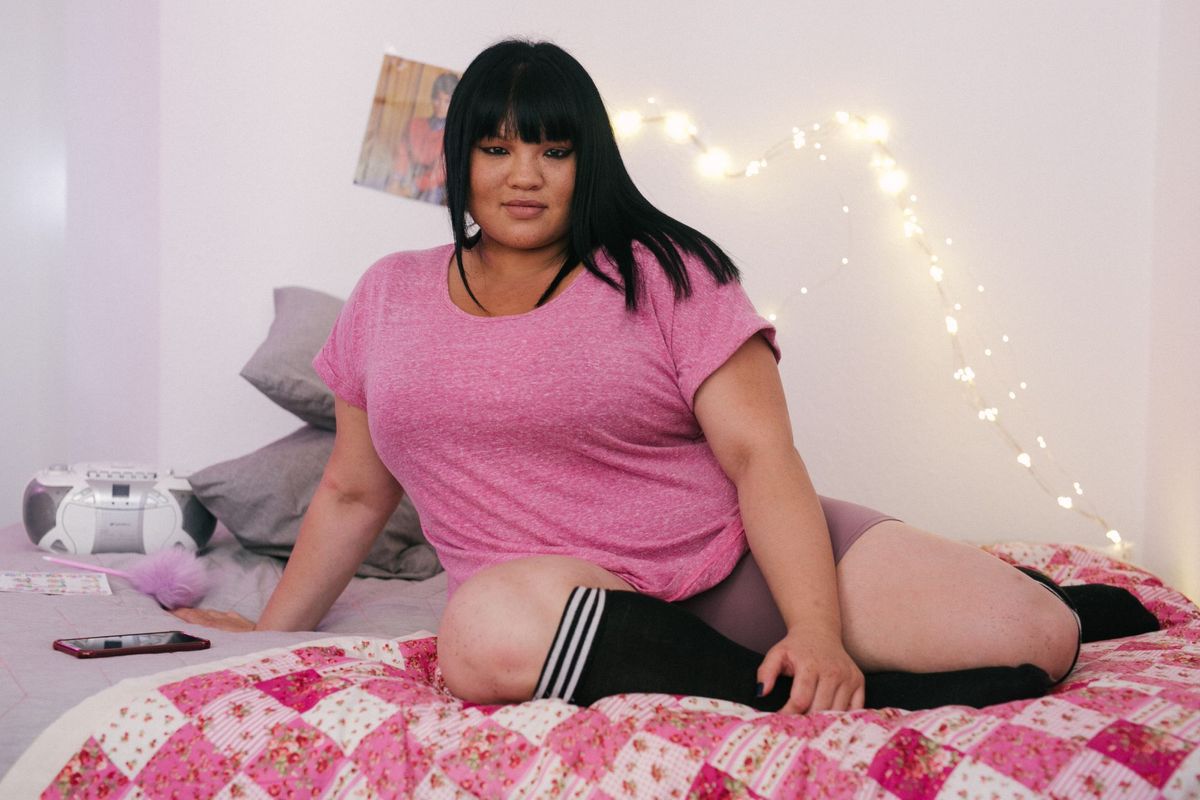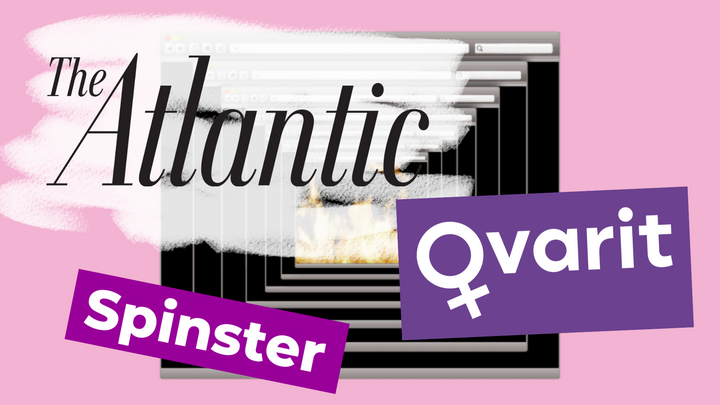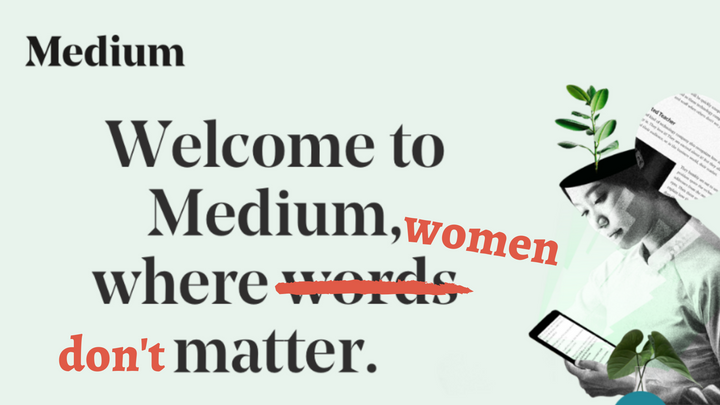OnlyFans Has Launched A Massive COVID-19 PR Campaign
And mainstream media is eating it up

In April, as unemployment rates around the world soared due to COVID-19 quarantine measures, most governments offered no or insufficient financial help. In response, a disturbing trend rose to the surface. Mainstream media reported that many women, desperate for cash, started selling their nudes online.
Instead of sounding alarm bells about vulnerable populations, primarily women, being sexually exploited online, most news portals chose to celebrate this fact. In PR articles poorly disguised as journalism, authors shamelessly praised one online-pimping platform in particular: OnlyFans.
OnlyFans.com is an online membership platform for independent content creators, similar to Patreon. There aren’t many traditional artists on the platform, though. The website has become synonymous with a space for selling “DIY” porn.
Onlyfans has been compared to Instagram, the difference being that subscribers have to pay to see someone‘s timeline. Also, contrary to Instagram, the content, ranging from photos to videos, can be pornographic.
OnlyFans launches massive PR push amid coronavirus pandemic
On BBC 4’s 2019 The Media Show podcast, PR specialist Keren Haynes said: “If you took out PR-related stories from the news agenda these days, you would end up with a pretty big pool.”
Other PR expert guests on the podcast confirmed that a lot of content in both private and state-owned media comes directly from PR firms. The surge in OnlyFans celebrations seems to be part of such pool.
For example, at the beginning of April 2020, the online media world exploded with articles covering the fact that OnlyFans subscriptions rose sharply since the coronavirus quarantine.
"A lot of content in both private and state-owned media comes directly from PR firms."
Spanning just four days, texts about the surge in OnlyFans “creators” appeared in The Guardian, Vice, Huffpost, San Francisco Chronicle and in regional British media, as well as in non-English language online magazines.
All these articles had one important thing in common: their authors offered no criticism either of the platform or of the fact that women (and some men) are driven to online prostitution by the lack of funds.
Instead, most journalists emphasized the huge amounts of money the “creators” made through OnlyFans and the freedom such “work” provided. On top of that, some authors suggested this “job” can teach shy women to have confidence.
In a take unique in its outrageousness, The Guardian’s Sofia Barrett-Ibarria stressed that OnlyFans has been great for “marginalized folks,” offering transgender, nonbinary, black, fat and disabled people a way not only to make money, but also to “heal.”
In relation to the suggested therapeutic effects of porn, Barrett-Ibarria quoted a transgender OnlyFans “creator” called Xöe Nova:
“It’s always extra special to work with other trans performers. I personally find it magical to make porn with someone who is on the same path as me in that way, it’s healing.”
By such unchallenged celebratory statements, the author crossed the territory of praising prostitution as an emergency source of income and entered a new one: presenting prostitution as therapy.
Journalists or pimps?
Consumers of online content are generally unable to recognize PR from genuine reporting, and youth are particularly vulnerable. One study of media literacy in 2017 found that 82 percent of middle schoolers could not tell the difference between sponsored content and real news stories. When the “product” being sold is an online pimping platform, this is particularly concerning.
Take, for example, the following headline:“Katie Price Made $100,000 In a Month Working For Her Pimp, John Long.” Would it get a green light on websites like The Huffington Post or The Guardian? Probably not.
But, headlines such as the ones below, shamelessly promoting a for-profit online porn platform, were given the thumbs up by editors:
“How woman, 23, makes nearly £3,000 A MONTH selling sexy selfies from her bedroom“ (British The Mirror)
“WA model Jem Wolfie breaks social media, makes millions on OnlyFans” (Australian The West)
“Lancashire woman quits degree to earn 30k per month selling pictures on OnlyFans“ (British Lancashire Live)
Such articles seem to erase not only the border between journalism and marketing, but between a writer and a pimp.
In fact, the promise of money is one of the textbook tactics that pimps use to lure their victims into prostitution. Just as with other promises, the reality is often very far from the truth.
Some women on OnlyFans have already faced the hard truth. Although a few claimed they have made great money on the platform, many others (example 1, example 2) have reported they never received pay.
"Such articles seem to erase not only the border between journalism and marketing, but between a writer and a pimp."
This is consistent with the findings of experts who claim that pimps are often engaged in illegal behavior beyond their pimping activities. As Laila Mickelwait explained in an interview with Christina Rangel on Exodus Cry’s podcast, very often, pimps are criminals. Rangel, a survivor of prostitution, stated her pimps forced her and other prostituted women to take part in all kinds of criminal activities such as petty theft, identity theft or fraud besides “soliciting,” which is a crime in the US.
Concerning OnlyFans, multiple people in online review forums have described unfair business practices taking place on the platform. Many ex-users claim OnlyFans charged them more than it should have, or they saw their accounts deleted right after they submitted credit card details.
Even if these were just technical errors, nothing would change the fact that OnlyFans makes money from prostituted women. In fact, they deduct 20% from every payment the “creator” receives, comparable to traditional pimps.
In Julie Bindel’s 2020 Spectator article, a woman who used to have an OnlyFans account explained how “rich” the platform made her: “Each subscriber paid me $10 a week and after the cut from OF I was left with £8. I needed to get as many subscribers as possible so I could pay my rent, which means posting new images all day every day." In the end, she felt exhausted and degraded and cancelled her account.
I see PR people
With the exception of three articles and one video documentary by the BBC, the dark side of OnlyFans stays hidden from the public by a constant stream of PR. The latest stunt features liberal feminist icons Beyoncé and Meghan Thee Stallion.
At the end of April these two artists, celebrated as the queens of feminism, teamed up and produced a remix of Stallion’s song called “Savage,” with lyrics that mention the online platform. This has been a PR gold mine. After the single’s release, dozens of online media outlets reported on the mention. Rolling Stone magazine, for instance, chose to run this headline: “OnlyFans Responds to Beyoncé’s Verse on Megan Thee Stallion’s ‘Savage’.“
In the song’s lyrics, Beyoncé muses she could join OnlyFans: “Hips TikTok when I dance/On that Demon Time, she might start an OnlyFans (OnlyFans).”
The single's release has caused a veritable deluge of PR-resembling online content mentioning or celebrating OnlyFans. Since the song went public, “journalists” have speculated whether it was Jay-Z who wrote the lyrics and reported on an increase in the site’s traffic. All such mentions promote the platform, which leads to more johns spending money and more women being prostituted online.
The dangers of online prostitution
According to the organization Nordic Model Now!, “prostitution is inherently violent because, by definition, it involves unwanted sex.“ Pornography is prostitution captured on photos or videos.
While porn doesn’t have to involve sexual penetration, it has other ways of degrading and violating its objects. Contrary to classic prostitution, in pornography the footage of one’s abuse can become public masturbatory material, eternally circulating in the annals of Internet.
"Pornography is prostitution captured on photos or videos."
Sending nudes, or self-generated porn to people through the Internet, whether the recipients paid for it or not, makes women and girls vulnerable to other forms of degradation or violence.
In the recent monstrous South Korean “Nth Room” case, men sexually exploited women and girls as young as 10 and trapped them in virtual slavery. One of the ways the criminals chose women to enslave was by targeting those already engaged in online prostitution.
According to The Korea Herald, some of the multiple men involved in the Nth Room case contacted women who made money by “sexting,” or posted naked pictures of themselves on the Internet. The criminals impersonated the police and tricked the women and girls into disclosing their personal details. With the information, they threatened their victims they would reveal the fact that the women engaged in “lewd” behavior online to the victims’ friends and families.
Even if a woman doesn’t get trapped in sexual slavery, there are other dangers in publishing your sexual content online for money. In February 2020, journalists reported that a young Australian woman who posted explicit content on OnlyFans was stalked and harassed. The perpetrator was an unsatisfied punter, who got angry after she refused to meet with him in real life. As punishment, he posted her real name, age, phone number and location alongside pornographic images in fake prostitution advertisements online.
Another Australian to explain the grim reality of online prostitution, is Charlotte, an ex “webcam girl.” In a 2016 interview with Meghan Murphy she described the grim reality of this type of online prostitution. As she said on the podcast, at first, when she started "webcamming" she felt empowered by being able to set her own working hours and making good money. However, as time went by, the men who watched her livestream shows tried to push her boundaries and asked her to perform increasingly violent acts. As the Internet offered the punters anonymity, many of them confessed to her their pedophilic fantasies. Similarly to the Australian on OnlyFans, during webcamming, Charlotte encountered men who tried to extort her and who claimed they’d uncovered her real identity.
"The men who watched her livestream shows tried to push her boundaries and asked her to perform increasingly violent acts. "
Despite great promises, what the online pornographic industry really offers women is humiliation, violence and potential enslavement.
In a world where media, even the ones claiming to be feminist, push such violence and objectification on women and girls and bend backwards to serve shady online pimps, it is high time to rethink our media consumption. It is essential not just to be gender critical, but to be media critical. Most large newspapers and online media empires are beholden to advertisers, creating massive conflicts of interest. All information coming from such sources should be taken with a massive grain of salt.
The generous support of our readers allows 4W to pay our all-female staff and over 50 writers across the globe for original articles and reporting you can’t find anywhere else. Like our work? Become a monthly donor!
Enter your email below to sign in or become a 4W member and join the conversation.
(Already did this? Try refreshing the page!)





Comments